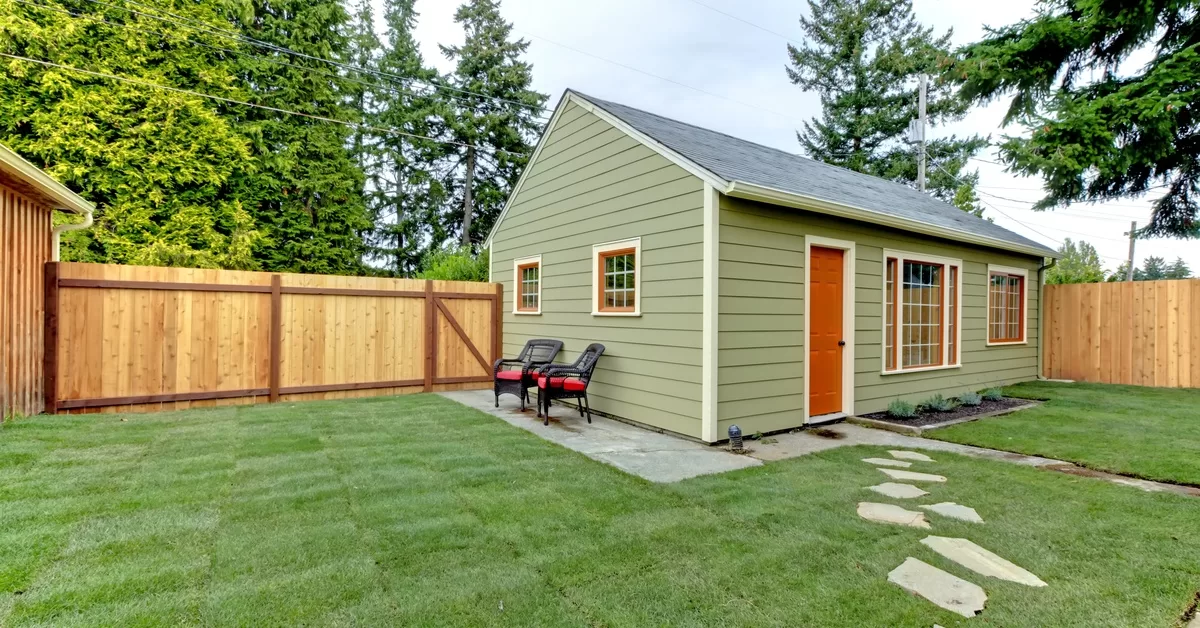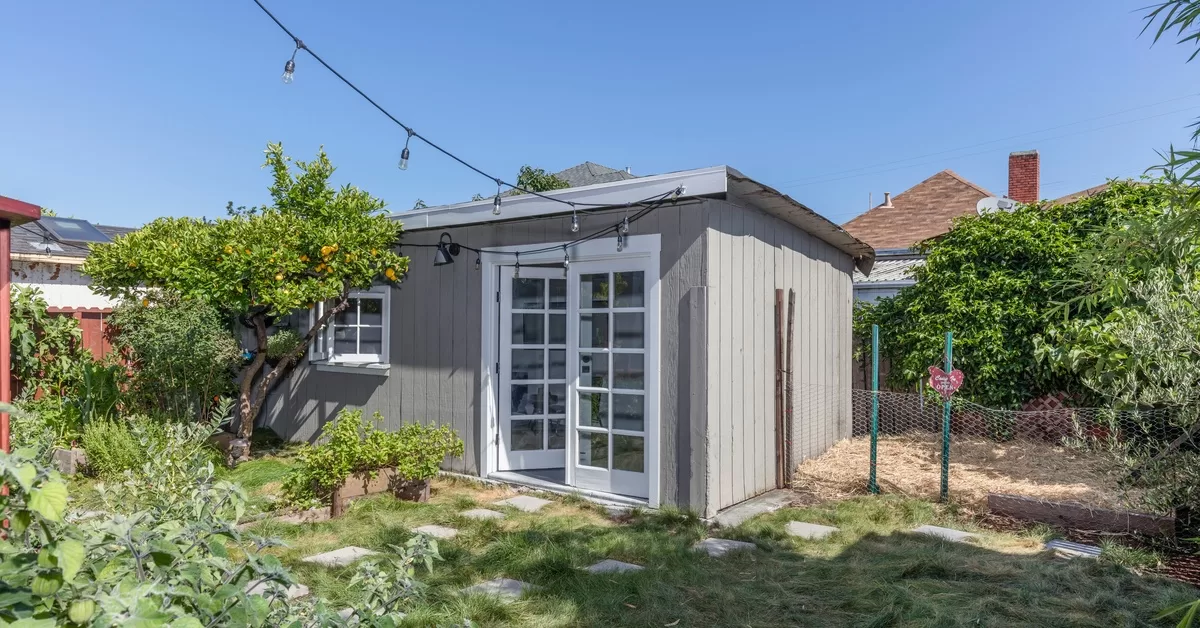Attached vs. Detached ADUs: Which Is Best for You?

Accessory dwelling units (ADUs) are gaining popularity among homeowners across the country. These self-contained living spaces—often known as backyard cottages or in-law suites—are built on the same lots as single-family homes. They can add value to a property, allow for rental income, or accommodate evolving needs without requiring a move.
Whether maximizing your backyard or transforming unused space within your home, the right setup can make a big difference. Discover whether an attached or detached ADU is best for you and make the most of your property’s potential.
What Is a Detached ADU?
A detached ADU is a standalone unit constructed separately from your primary residence. Units can range from compact backyard cottages to larger structures, typically between 300 and 1,200 square feet. Since these dwellings do not share walls with the main home, they offer full separation between the living spaces.
Pros of Detached ADUs
One of the biggest advantages of detached ADUs is privacy. As mentioned, these units are separate from the main home, making them ideal for renting out, housing visiting family members, or serving as quiet workspaces.
In addition, detached ADUS are incredibly versatile. Whether you envision a short-term rental or a home office, a detached ADU can be customized for nearly any purpose. And because they’re built from the ground up, there are more predictable construction timelines and fewer surprises along the way.
Cons of Detached ADUs

Of course, building a separate structure has its downsides. Detached ADUs cost more to construct due to the need for additional materials, utility connections, and a foundation. You'll also have to care for the ADU and the main house separately. This can add both time and cost.
Additionally, because a detached ADU is independent from your home, it can be less convenient to access. The distance might cause problems if you use the space for a home office or guest accommodation.
Another consideration is that adding a detached ADU reduces your available outdoor space, impacting your ability to enjoy your backyard or entertain guests. This is uniquely important in suburban areas where larger yards are highly valued.
What Is an Attached ADU?
Attached ADUs are integrated into existing home structures, sharing at least one wall with the primary residence. These dwellings often involve converting basements or garages, or adding extensions to the home. Attached ADUs have their own entrances and include a kitchen, at least one bathroom, and sleeping spaces.
Pros of Attached ADUs
Because they take advantage of a home’s existing structure, attached ADUs are quicker and easier to build than detached units. Construction can be more streamlined, reducing overall build time and labor costs. This is especially advantageous for homeowners looking to complete a project within a short timeframe.
Also, attached ADUs offer better integration with the primary home, both functionally and aesthetically. Whether converting a basement or adding an extension, these units are easier to customize to match a home’s layout and design. By utilizing existing structures, property owners can add valuable living space on urban or suburban lots where land is at a premium.
Cons of Attached ADUs
That said, attached ADUs aren’t the best fit for every home. Since they share at least one wall with the main house, the level of privacy is reduced. This could be a concern if you rent an attached dwelling unit out or use it as a home office or in-law suite.
Design flexibility is another limitation, and if your home is older, you might run into issues like outdated plumbing or electrical systems, which can quickly inflate your budget despite the initial savings.
Key Considerations for Homeowners

Before choosing between an attached or detached ADU, it’s necessary to understand the specific zoning laws and property constraints that apply to homeowners in the Lexington and Louisville, KY areas.
Lexington, KY
The Lexington-Fayette Urban County Government does not have a minimum lot size requirement for ADUs. However, the maximum size for any ADU is 800 square feet. On top of that, the city mandates that a maximum of two people, and their children, can live in an accessory dwelling unit at a given time. That’s an important factor to keep in mind if you’re considering using the space strictly as a rental.
You’ll also need to take parking into account. Lexington allows for one additional off-street space for ADUs. And finally, keep in mind that ADUs in Lexington can’t be sold separately from the main home.
Louisville, KY
In Louisville, the Land Development Code is slightly different. ADUs are allowed on single-family lots, but detached units must follow setback and size requirements, with a cap of 800 square feet or 30 percent of the main home’s square footage, whichever is greater.
Off-street parking must also meet the city’s Land Development Code, so confirming your layout and driveway capacity is worth the effort. Like Lexington, Louisville restricts ADUs from being sold separately, reinforcing that these units are meant to enhance the value and utility of your home, not create an independent real estate parcel.
How To Choose the Right ADU for You
Choosing between an attached or detached ADU comes down to a few key factors—your land, your goals, and your budget.
Assess Your Land
Start by taking a good look at your property. If you’re working with a smaller lot in an urban neighborhood, an attached ADU might be the smarter option. It lets you expand your living space without sacrificing your yard. On the other hand, if you have a larger suburban property, a detached unit may offer more flexibility, especially if privacy or rental potential is a top priority.
Set Your Goals
It’s also important to think through your goals. If you’re planning to house a family member or expand your living space on a tight budget, attached ADUs are more cost-effective. But if you’re hoping to bring in steady rental income, detached units fetch a higher price and add resale appeal.
Consult an Accessory Dwelling Unit Builder
No matter which option you choose, connecting with an accessory dwelling unit builder is crucial. An experienced, local professional can help you navigate your area’s zoning rules and give you accurate timelines and cost breakdowns. From owner occupancy laws to parking requirements and setback restrictions, they’ll ensure you build something that works for your home and the city.
Making the Right Choice for You
Both attached and detached ADUs offer unique advantages. Attached ADUs are ideal for maximizing space on smaller lots and often have lower construction costs. Detached units provide greater privacy and flexibility but may involve higher expenses and more complex permitting processes. Ultimately, deciding whether an attached or detached ADU is best for you comes down to your property’s layout, your budget, and how you plan to use the space.
At Distinctive Design Remodeling, we specialize in designing and building ADUs that meet your needs. Whether you’re envisioning a cozy attached unit or a spacious detached cottage, our team is here to help. Contact us today to schedule a consultation and take the first step toward adding an ADU to your home.
